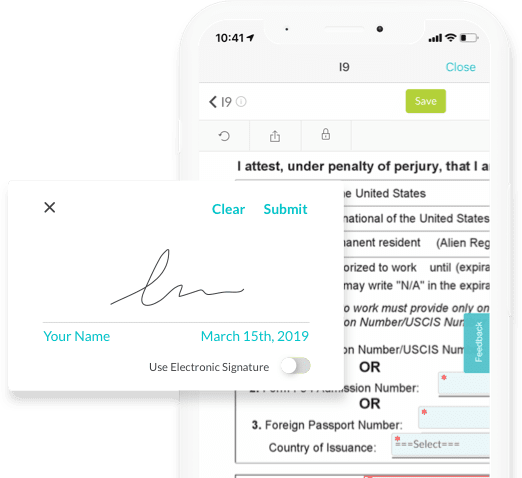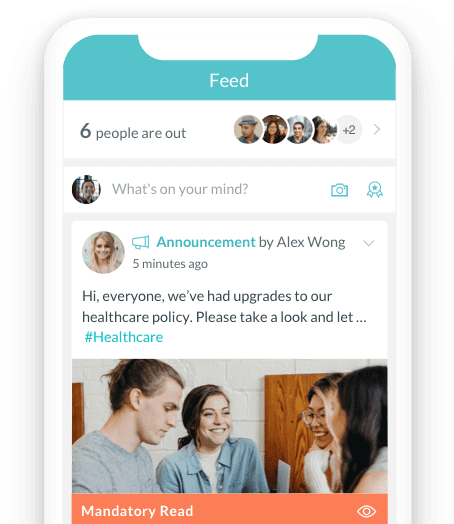- Why Do You Need Personalized Onboarding Training?
- Personalized Employee Onboarding Tips
- 1. Create a More Personalized Welcome Package
- 2. Let the New Hires Meet their Direct Colleagues
- 3. Assign Each Hire a Mentor or Work Buddy
- 4. Streamline the Onboarding Process for Each Department
- 5. Dedicate Enough Time to the Onboarding Process
- 6. Use the Best Onboarding Tools
- 7. Deal with the Paperwork Before the First Day of Onboarding
- 8. Involve Senior Management Figures
- 9. Cut Back on the Deadlines
- 10. Allow the New Employees to Express Themselves
For most businesses, hiring is part and parcel of the hiring process. With new employees come new ideas on how to carry forward the company mission and purpose. That is why there is a need for the onboarding of the employees to be spot on.
Personalized employee onboarding ensures the employees quickly acclimatize to their workplace and improve technical skills with its purpose and mission.
An ideal onboarding session will also have the employees learn how to use the company’s software faster, which will, in turn, enable them to serve the company better. Employee onboarding and training will be easier if you follow some of the tips we will share.
But before we get to that.
Why Do You Need Personalized Onboarding Training?
While it pays to focus more on your customers, it would be foolhardy for you to ignore your employees completely. New hires need to be shown the warm side of the company if you are to reduce worker turnover. That’s where personalized onboarding comes in.
A personalized employee onboarding process will enable you to conduct technical skills assessments and retain most of your new hires as it creates a connection with the company. Such a process will require you to let your new employees express themselves personally and professionally.
Personalized Employee Onboarding Tips
So, what are the tips that will make the whole onboarding process a personalized experience for the new employees?

1. Create a More Personalized Welcome Package
Handwritten notes from team members and new colleagues will help a lot in making the onboarding process personalized. It will give the onboarding strategy a personal touch, apart from helping the new hires feel at home.
You could also include token gifts such as notebooks and pens, which could play a significant role in breaking the ice with new hires. Another strategy to make the process more personalized would be creating a short video welcoming the new employees.
2. Let the New Hires Meet their Direct Colleagues
What will make it more personalized than if the new hires get to meet their new colleagues? Their colleagues should help them feel comfortable within their new surroundings and have them learn about the company's values.
You could give a few personal stories from the colleagues to help them get to know them better. It could build the connection you need between the new hires and your existing workers.
Their direct colleagues might help them to feel at ease and ready for the onboarding process. It would also provide the support network the new employees might fall back on throughout their first few days at the company.
3. Assign Each Hire a Mentor or Work Buddy
Mentors could come in handy when crafting a personalized onboarding process. Having someone to hold their hands through the first days in the company could go a long way in helping your new employees feel welcome.
The mentor doesn’t necessarily have to be older than them since you are going by the number of years the person has been in the company. A work buddy could also function as a mentor in some ways.
We all feel lonely in the first few days in a new place and would appreciate a friend or two to ease the loneliness. That’s where the work buddy comes into play! You could also add a small business phone system that will enable easy communication when they need guidance from a mentor.
4. Streamline the Onboarding Process for Each Department
If you have multiple departments, it would be better to have an onboarding process tailor-made for each department. The same would apply if you also have different teams or locations for your company.
This would help the new employees process the information they get in the onboarding faster. That’s because breaking down the onboarding process will make it simpler and reduce the amount of information the new hires are supposed to understand before starting work.
For the technical departments that involve having data scientists, and software developers it may prove to be difficult to test the programming knowledge of your new employees. Having online coding tests will help you shorten the interview process and get the best-suited developer to join your IT department.
A branched onboarding process is also easier to implement than the one you roll out for all company departments. It will enable the trainers to give more personalized training for the new hires as well.
“As soon as we saw HR Cloud’s Onboard demo, we knew this was the perfect solution for us. We loved that it was extremely simple and powerful out of the box, but that we could customize it with advanced capabilities to make it work in our company setting.”

5. Dedicate Enough Time to the Onboarding Process
Most organizations will want their latest additions to join the workforce working as soon as possible. It is, however, impractical to have this if you don’t dedicate enough time to the onboarding process. Hurrying your employees to onboard gives out a negative vibe. You need to give them enough time to blend in and get to know their fellow colleagues at the workplace.
A personalized process will take you a shorter time as you get down to ensuring the new hire feels as comfortable as possible within their surroundings. A longer timeframe will also enable more hires to ace the technical skills assessment test they face.
It would take about a week for employees to have adequately been onboarded and taught all the company requirements. Giving the process enough time will ensure your employees don’t have to shuttle between working and training the new employees.
You also don’t want to rush the new employees through the process as this could affect their ability to be helpful to the business. That is why you need to ensure you dedicate adequate time to the onboarding process across all departments.
This will also require you to make an extensively detailed plan for the first few months of having the employees on board. Depending on the employees you hire, it might take some time for them to get used to the company. That’s why you need to give the onboarding process enough time.
6. Use the Best Onboarding Tools
When it comes to employee onboarding, it is all about your systems. If you have complex systems in place, it will take you longer to teach the new hires how things run in your company.
That is why you need to ensure you have installed the best systems to enable you to offer the best onboarding training. Using simple HR tools in your onboarding will also go a long way in the making of a simpler system.
If the system is too hard to understand, it also becomes difficult for you to have the employees work as you’d want them to. Your system should have an introductory phase for your employees to meet company staff and get acquainted with its culture and values.
7. Deal with the Paperwork Before the First Day of Onboarding
Most people would agree that paperwork can be a frustrating experience when onboarding.
That’s why it can be a good idea to ensure most of the paperwork doesn’t get to the first day of onboarding training. Contracts, policy acknowledgment, or payroll forms should all have been signed before the onboarding finally starts.
This will save you a lot of the stress of dealing with paperwork during the onboarding process.
You will then be able to concentrate on more critical parts of the process.
Having less paperwork will not only save time but also impress your new hires. So much hangs on an efficient onboarding process, and rescuing them from too much paperwork should be one of those things.

8. Involve Senior Management Figures
In as much as it could be challenging to have the newbies have a sit-down with the CEO, you could still attempt to have other senior figures in the company involved in the onboarding process.
There are no better-placed individuals in a company to speak to new hires as the senior management figures. No one knows the company’s ethos and values as well as the senior management of a company. That is why they can offer the best inspiration to the new employees. If the CEO could also get in on the act, that could be even better.
This could make the new employees feel like they are valued by the company. They also learn the company’s vision from the people that spearhead the company and ensure it doesn’t stray from its mission. The impact of this could be immeasurable.
9. Cut Back on the Deadlines
Companies want their new employees working as soon as possible. This could lead to a situation where the trainers rush through the onboarding process, making it have strict deadlines that could destroy instead of build.
The hiring of software developers is one of the most difficult hires to conduct because it requires a lot of technical skills testing especially with all these new libraries and frameworks popping out now and then. React and Angular which are javascript libraries need you to conduct an angular online test and a react online test to personalize and ease the onboarding process
Granted, most employees would have said they are comfortable working under pressure but a relaxed learning environment will go a long way in helping them understand everything required of them. This also helps them improve their technical skills.
This might not make sense to most people, but it could be what you need to ensure the new hires get to grips as fast as possible. No one is comfortable learning in a rushed environment, especially if they have to deal with a lot of information.
Being more flexible with your deadlines will be a sure way of making the process more relaxed to reap maximum benefits.
10. Allow the New Employees to Express Themselves
No two people are the same, which is why you need to individually speak to each of the new hires about their goals and qualifications. By letting them express themselves, you will help them set realistic goals throughout the onboarding process.
Therefore, each employee will know what to strive for in their aim to fit the organization better.
A personalized onboarding process will ensure your employees fit in as fast as possible and understand what is required of them—the more personalized the process, the better the results.
About Author: Dennis Vu is the CEO and Co-founder of Ringblaze, a virtual business phone system company that helps teams to better serve their customers, anywhere.
Keep Reading
Retention Reset: How to Keep Your Best Talent in 2025
More employees are walking away from their jobs in 2025 not just for better pay, but for
Remote Onboarding Done Right: A Step-by-Step Guide for HR Teams
Remote onboarding is the process of welcoming new employees who work from home or



